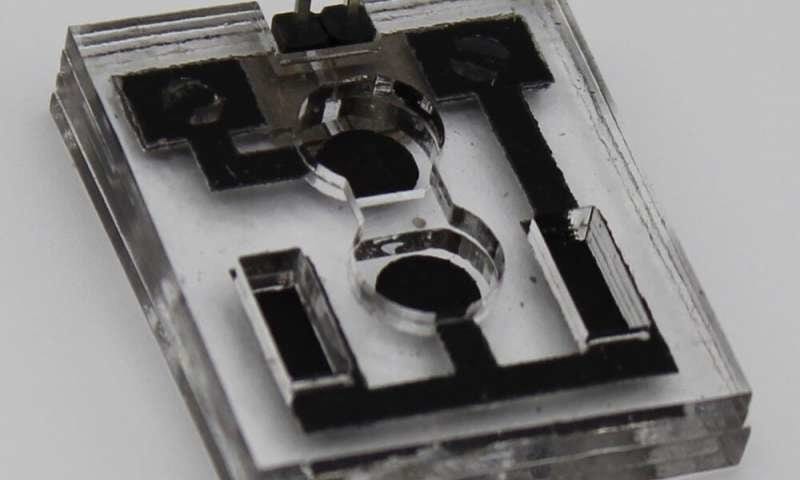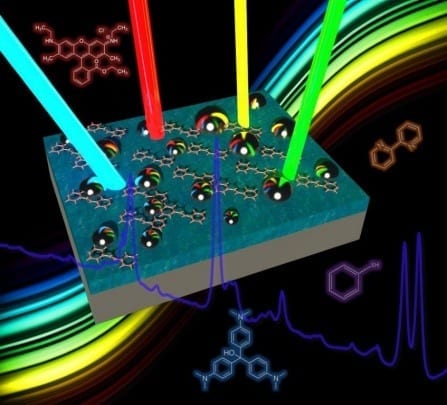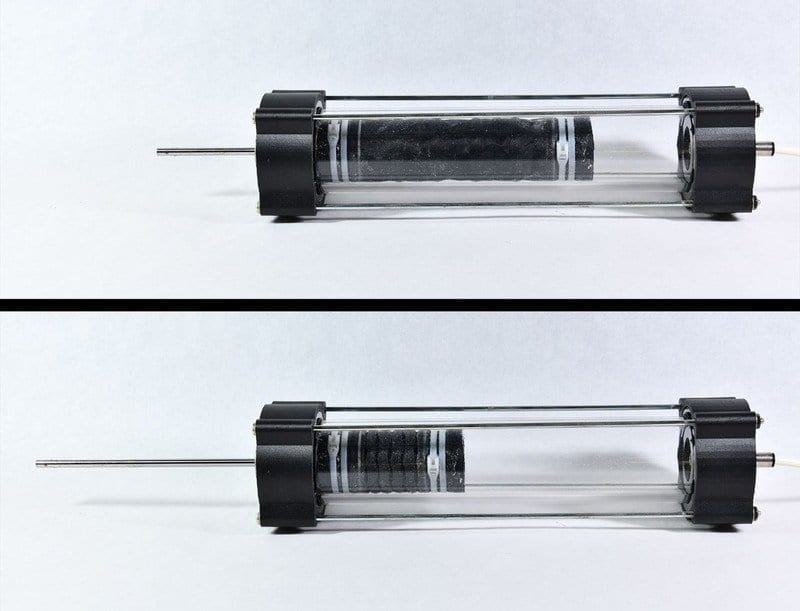
In the future, small paper and plastic devices will be able to connect to the internet for a short duration, providing information on everything from healthcare to consumer products, before they are thrown away. Researchers at Binghamton University, State University of New York have developed a micro biobattery that could power these disposable sensors.
The Internet of Disposable Things is a phenomenon in which wireless sensors are attached to nearly any type of device in order to provide up-to-date information via the internet. For example, a sensor could be attached to food packaging to monitor the freshness of the food inside.
“Internet of Disposable Things (IoDT) is a new paradigm for the rapid evolution of wireless sensor networks,” said Seokheun Choi, associate professor of electrical and computer engineering at Binghamton University. “This novel technique, constructed in a small, compact, disposable package at a low price point, can connect things inexpensively to function for only a programmed period and then be readily thrown away.”
Choi’s previous small-size microbial fuel cells suffered from low power density and energy-intensive fluidic feeding operation, so he thought that a small-power, disposable, solid-state battery-type microbial fuel cell platform without the fluidic system would be more applicable and potentially realizable.
“Previously, my group had two directions: 1) disposable paper-based biobatteries for single-use low-power systems (e.g. biosensors) and 2) long-term microbial fuel cells for sustainable applications. The biobattery we developed this time was a kind of combined technique of those two; the power duration was significantly enhanced by using solid-state compartments but the device is a form of a battery without complicated energy-intensive fluidic feeding systems that typical microbial fuel cells require.”
“Current IoDTs are mostly powered by expensive and environmentally-hazardous batteries, thus, ultimately leading to significant cost increases and environmental issues for their large-scale deployment,” added Choi. “Our biobattery is low-cost, disposable and environmentally-friendly.”
Choi is in the process of integrating serially connected biobatteries with a DC-DC converter.
Learn more: EVERYTHING WILL CONNECT TO THE INTERNET SOMEDAY, AND THIS BIOBATTERY COULD HELP MAKE THAT A REALITY
The Latest on: Disposable sensors
[google_news title=”” keyword=”disposable sensors” num_posts=”10″ blurb_length=”0″ show_thumb=”left”]
via Google News
The Latest on: Disposable sensors
- Automotive Fabrics Market to Reach $62.22 Billion by 2033; Rising Demand for Vehicle Interior Aesthetics to Propel Growthon May 7, 2024 at 5:00 pm
The global Automotive Fabrics market is anticipated to grow from USD 38.71 billion to USD 62.22 billion in 10 years. The advancement of safety measures in automotive applications has significantly ...
- Luxury on a Budget: 12 Affordable Smartphones with Premium Featureson May 7, 2024 at 4:10 pm
In this article, we will look at the 12 affordable smartphones with premium features. If you want to skip our detailed analysis, you can go directly to the Luxury on a Budget: 5 Affordable Smartphones ...
- New patent for bio-based polymer to be used in piezoelectric deviceson May 7, 2024 at 12:07 pm
UD engineers are the lead inventors on a new patent for making piezoelectric devices, such as sensors and actuators, using Nodax, a biodegradable, bio-based polymer.
- The World's First 2-in-1 Robot Vacuum and Mop with Auto Changing Disposable Mop Pad Celebrates National Pet Monthon May 7, 2024 at 7:00 am
Noesis, a leading innovator in robotic floor cleaning, is celebrating May's National Pet Month by announcing a $200 discount (to $1,599.00) for the Noesis F10 Pro, the world's first 2-in-1 robot ...
- New device developed by UCSD could identify which babies will struggle with breastfeedingon May 6, 2024 at 5:00 am
Led by engineer James Friend, a team in the university’s Medically Advanced Devices Laboratory rigged up a “non-nutritive suckling system” by connecting a digital vacuum sensor to an ordinary ...
- Best disposable nappies 2024: Which? Best Buys and expert buying adviceon April 30, 2024 at 5:00 pm
We regularly test disposable nappies in our lab to find out how effective they are at absorbing liquid quickly, keeping moisture away from your baby's skin and holding onto liquid so it doesn't leak ...
- Wearable Sensors Market towards a USD 10.19 Billion by 2032on April 29, 2024 at 11:15 pm
IntroductionAccording to Market.us, The Global Wearable Sensors market size is expected to be worth around USD 10.19 Billion by 2032, from USD 3.55 Billion in 2023, growing at a CAGR of 12.8% during ...
- Make Taking Pictures on iPhone Fun Again With These Retro Photo Appson April 26, 2024 at 7:35 am
When your iPhone photos start to feel boring, apps like Mood introduce filmic effects to put an edge back on your shots.
- A 2024 Review of the Dexcom G6 vs. Abbott FreeStyle Libre: How Do These CGMs Compare?on April 7, 2024 at 5:00 pm
14-day sensor. FreeStyle Libre 2 uses a round, fully-disposable sensor the size of two stacked quarters, worn on your upper arm for best results. A sticky adhesive on the back side keeps it ...
via Bing News










